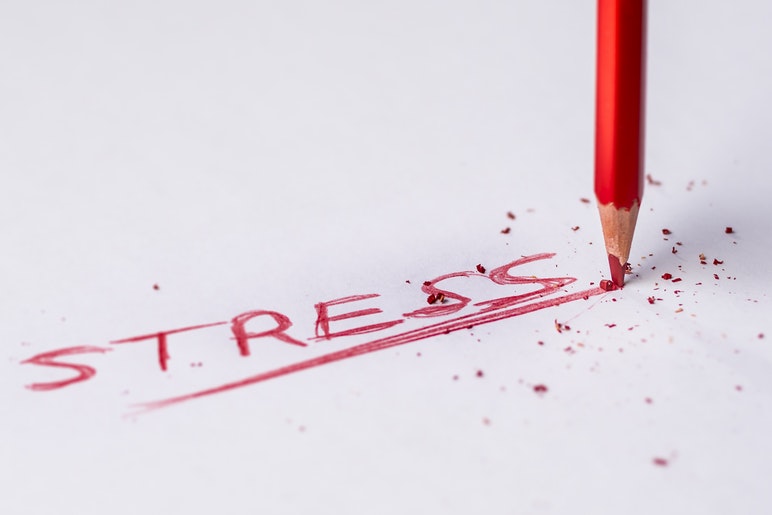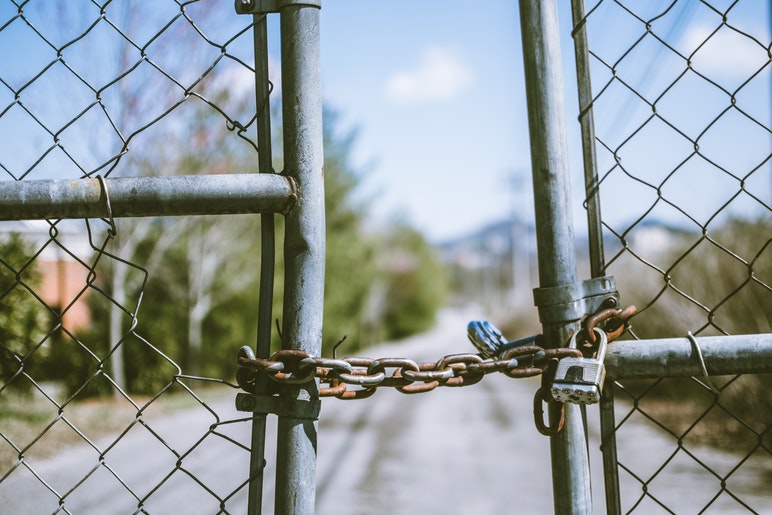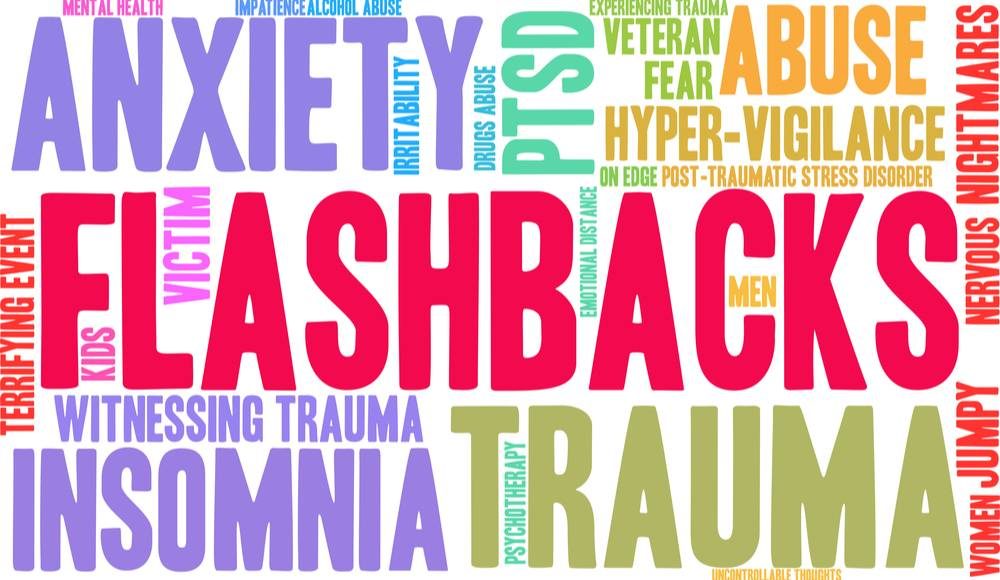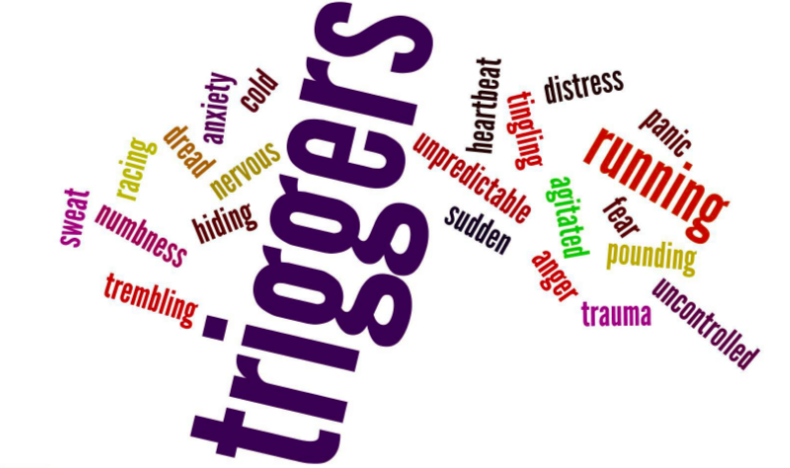Is it Anxiety or Stress?

Anxiety is one of the most common mental health conditions in the United States. According to the Anxiety and Depression Association of America, anxiety disorders affect 40 million adults in the United States, age 18 and older. The good news is that anxiety disorders are highly treatable, but get this, only 36.9% of those suffering are receiving mental health treatment.
Now, how do you know if you're one of those people who is experiencing the common anxiety, or if it's simply day to day stress?
Since the term anxiety is thrown around freely it can be hard to know if you do or don't struggle with an anxiety disorder. Now, we all know that life comes with stressors, worries and real-life situations that can cause anyone anxiety. Healthy amounts of anxiety can help us respond to daily stressors and responsibilities. including meeting deadlines at work or slamming the breaks, avoiding an accident.
Stress can be explained as more of a response to a change in the environment or a response to daily pressure. Meaning, if you are naturally calm but are told that you need to plan for a work event for 50 people, you'll have added pressure and stress.
The difference? Stress dissipates when the situation is over. Anxiety lingers.
Regular stressors are short-lived and you go back to your regular equilibrium once the situation has passed.
Anxiety is the feeling of pressure that persists in the absence of stressors. People with anxiety feel fearful and worried about what the future holds. Even if the "here and now" is ok, they often focus on the "what ifs?"
Anxiety can leave you in a dizzying spin because once you know you have anxiety, you begin feeling anxious about the fact that they're anxious, and may also begin avoiding situations.
For example, one anxiety sufferer said she sought treatment when her anxiety began impacting her life;
"I had a panic attack while giving a presentation at work, and I was terrified it would happen again so I began shirking responsibilities and avoiding work events...Getting treatment allowed me to work through the fear and practice skills to better manage my anxiety. I can now give presentations with more confidence, knowing that I have skills to use when anxiety creeps up".
Anxiety can feel different for each person, but there are some common signs and symptoms across the board. You may experience one symptom at a time or a few of them at once:
Common signs and symptoms:
-
Physical: hot and cold flashes, racing heart, panic attacks, tightening of the chest, quick breathing, restlessness, or feeling tense, wound up and edgy
-
Psychological: experiencing excessive fear, obsessive thinking, worrying, catastrophizing
-
Behavioral: avoidance: avoiding situations that make you feel anxious, and may impact choices you may at school, work or your social life.
Many mistake anxiety for a heart-attack, as anxiety symptoms can mimic those of a heart attack. Your heart races, you feel dizzy, nauseous and weak, and are breathless. It can be scary to experience!
Managing anxiety
Managing your anxiety early on is incredibly important since anxiety often restricts you from living your life with natural ease. The sooner you take care of yourself, the sooner you can experience relief and get back to functioning!
1. Prioritize self-care.
Ensure that you are getting enough shut-eye. Restful sleep is necessary for your body to feel rejuvenated and energized to manage daily responsibilities. Add exercise to your weekly schedule. Join the gym, attend a dance or yoga class. If you're tight on time, add movement to your daily routine; park far away from the train so you get a few minutes of walking, or squeeze a 20 min jog before you start your day. Movement helps "up " your heart rate which helps manage anxiety symptoms.
2. Reduce alcohol and caffeine Intake.
Suppressants and stimulants can trigger your anxiety to feel worse. Be mindful of how much alcohol you're ingesting on the weekend and how many cups of coffee you drink daily
3. Meditate.
Meditation is the practice of slowing the mind and experiencing the present moment by simply noticing your thoughts and feelings without judgment. Meditations have proven to reduce brain activity and increase an innate feeling of calm. Don't push it though. Start with one minute and build up over time. It can take time to train your brain to slow down.
4. Square breathing.
Practice square breathing to relax your mind and body. Doing this ensures that you are sending enough oxygen to your brain. Start with long exhale, then inhale to the count of 4, hold the breath to the count of 4, exhale to 4 and repeat (Imagine a box, and drawing a 4 on each line. You can draw it and use that as a visual aid when practicing this). By practicing deep breathing, your body will release pent up tension and become more grounded and connected to the present moment.
When to seek help:
If you have made shifts to your self-care and have taken extra measures to reduce your anxiety, but are feeling like you're barely managing, it may be time to reach out for professional help.
Psychotherapy with someone who specializes in treating anxiety can help you begin learning skills for relief, starting from the first session. Therapies like Cognitive Behavioral Therapy, Psychodynamic Psychotherapy, Expressive Arts and EMDR are a few methods that have been proven helpful in reducing anxiety. If your symptoms are on the extreme side, you may also want to explore the possibility of taking medication to help support you as well.
By making your mental health your priority, you're committing to a better life!
If you have more than the occasional stressor and struggle with anxiety, I encourage you to reach out and get help. Nip your anxiety in the bud so that you'll be able to live your life more fully.
If you've been struggling with anxiety and are seeking help in Long Island, Nassau County or the Five Towns, feel free to reach out so I can guide you in finding the right kind of help so that you can begin experiencing relief today!
*originally posted on integrativepsych.co
Esther Goldstein LCSW is a psychotherapist and trauma specialist with a private practice in Cedarhurst, NY. Esther specializes in treating professionals with anxiety, overwhelmed moms and individuals who want to have more meaningful relationships. Specialty areas include EMDR therapy, somatic therapy, trauma treatment, complex PTSD, and dissociative disorder treatment. As well, Esther provides trauma-informed consultation to therapists committed to improving their trauma-informed practice and attachment-focused EMDR consultation to therapist attaining hours towards EMDRIA certification. Esther's website is Integrativepsych.co











